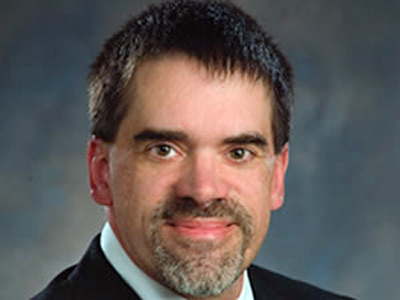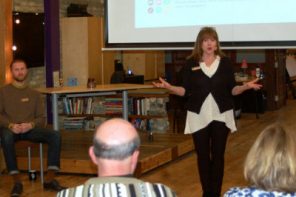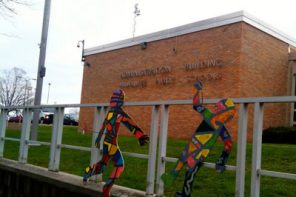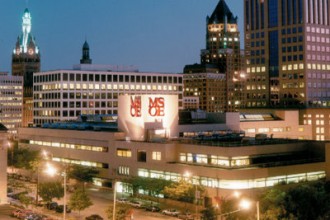School board elections take place on April and in order to help you make a more informed decision at the polls in this race, which often flies under the radar, we’ve asked each of the 11 candidates — running for five seats on the 9-member board (there are eight regional districts and one at-large seat) — to respond to a list of questions and we will run them in the weeks leading up to the election.
Today we hear from incumbent Tim Petersons, who is running in District 1, against challenger Mark Sain. The district is on the city’s far North Side. A map of districts is here.
OnMilwaukee.com: Tell us about your background and how your experience will be an asset to the Milwaukee Public Schools board.
Tim Petersons: I have been a bank internal auditor for 30 years. I have brought and will continue to bring the experience of reviewing the finacials of a business. I have been on the school board for 4 years and will bring a consistency to the board.
I have been a parent for 26 years and a foster parent for 5 years. I have children aged 26, 23, 16, 4 — two of them! — 3 and 1. This large span of years has kept me in touch with issues that schools and children face.
My wife has been a teacher in MPS for 18 years. I hear about her challenges and joys every day, which gives me an inside look to the front lines of school business.
OMC: Are you a graduate of MPS or other public schools? Do or did you have kids in MPS?
TP: I attended Sholes Middle School and graduated from Pulaski High School in 1978. My older children attended Brown Street Academy, Dr. King Elementary, Neeskara, Golda Meir, W. G. Bruce Elementary and Roosevelt Middle School. I currently have two 4-year-olds at Bruce.
OMC: What do you think is the biggest issue facing MPS and what is your plan of attack?
TP: The budget is the biggest issue facing MPS right now. I will work with the administration on crafting legislation regarding funding for all Wisconsin school districts.
I will continue to bring common sense to the discussion of what should be cut from schools so that the budget can balance.
OMC: What is your opinion on talk of expanding the voucher and Milwaukee Parental Choice Program?
TP: If the voucher and MPCP programs continue, the funding must be fixed. Taxpayers of Milwaukee cannot continue to pay for students that the state should be paying for. The schools in the MPCP program must be held accountable for high achievement and balanced budgets. If we are paying for it, they should be judged the same way MPS is judged.
OMC: Is there an opportunity for MPS to hold on to students and even draw some back via expansion of specialty schools or other means?
TP: There is an opportunity for MPS to hold on to students and bring them back from other areas but it will be difficult. When behavior issues by the few decrease so that the learning by the majority increases, parents will view MPS as a safe place of high standards. Evidence that our schools are safe and provide children optimum academic opportunities, our enrollment will increase.
OMC: How will you work to engage parents in their schools?
TP: As a Milwaukee County foster parent I think we should investigate a partnership with the Bureau of Milwaukee Child Welfare so that parenting classes involved the schools, too. I believe that we need to keep using the media to encourage parents to be more involved.
OMC: How do you think MPS can best expand on the successes in the current system?
TP: Study teams should determine specific qualities of our many successful schools that can be duplicated at other schools. Strong school administration is one key of successful schools that we must work on developing.
OMC: How can MPS deal with the ongoing budget problems — that are poised to grow even worse as the district loses $90+ million in stimulus money, for example — and still offer quality education to Milwaukee children?
TP: I feel we must take a look at the district and review the capacity of each and every school. If we can downsize enough to get every school to at least 75 percent capacity then those schools will have more money for specialists and support personnel. Some buildings will need to be closed and sold. These are tough decisions that are financially beneficial.
I also think we need to explore the daycare aspect of educating children. If we can get the children in our doors early — in a business that makes money and teaches children – then we will probably keep them in our buildings.
OMC: Finally, do you think spring school board elections are problematic? Do they guarantee low turnout at the polls?
TP: Yes, it is very difficult to collect the necessary signatures on nomination papers in December due to the weather and the holidays. Past history shows a low voter turnout.


 i evaluate to yes even if there's no image
i evaluate to yes even if there's no image  i evaluate to yes even if there's no image
i evaluate to yes even if there's no image  i evaluate to yes even if there's no image
i evaluate to yes even if there's no image  i evaluate to yes even if there's no image
i evaluate to yes even if there's no image  i evaluate to yes even if there's no image
i evaluate to yes even if there's no image  i evaluate to yes even if there's no image
i evaluate to yes even if there's no image 